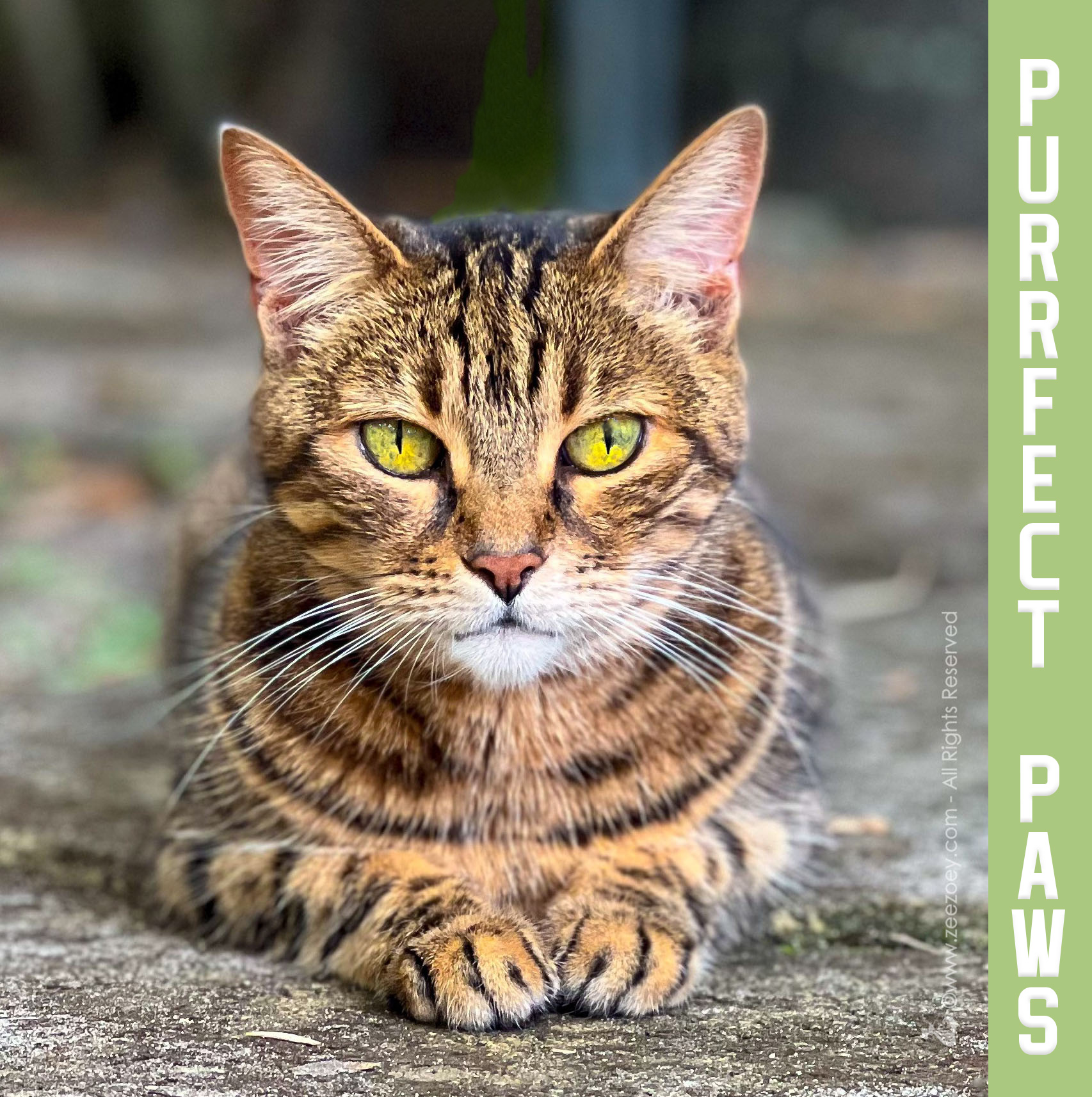
As someone who’s been writing articles on cat health, behavior, and wellness for many years, it’s no surprise my emails and social media sites are full of messages about cats. One of the topics I see most is whether cats can be left alone for days at a time while their guardian is away. It’s an important subject regardless of the timeframe or circumstances. But with Thanksgiving, Hanukkah, Christmas, and New Year’s rapidly descending on us and people making overnight plans to visit with friends and family, it makes the discussion even more relevant, because the simple answer is, no, your cat should not be left alone, not even for one night.
One of the biggest misconceptions about cats is that they are self-sufficient, independent, and aloof, and therefore if we provide them with sufficient food and water, it’s okay to leave them alone for a few days. This, however, is not the case. Cats are creatures of habit. While you might leave them every day to go to work or school or wherever; they’ve become accustomed to that routine. If you – their loving and reliable caretaker suddenly leave them unattended and disrupt the rhythm, they become susceptible to emotional stress, dangers, and bad habits.
Beth Stultz, president of Pet Sitters International (PSI) concurs. “Not only do cats need fresh food and water, as well as attention and enrichment each day, but it’s also important to remember that both health and home emergencies can occur while pet parents are away. PSI stresses that cats should be visited at least once per day while the pet parent is out of town.”

1. Illnesses, Injuries, and Emergencies Can Happen. Cats, with their keen senses, can easily be spooked. Wind or a knock at the door could result in a mad dash through the house and an injury if your cat breaks something. A razor-sharp shard of glass from a broken vase, for example, could bring a serious cut to a paw. Or a scared cat might jump down from a high place, resulting in a sprain. If you have multiple cats, fights are not uncommon and could result in an eye or ear injury, with one quick swipe from a claw. Or if an illness or medical emergency develops, such as urinary blockage, no one will be around to take the cat to the veterinarian, which could be deadly if not attended to. Consider, too, if you’ve decorated for Christmas with a tree. Your cat could become entangled in the light strands. Some crafty cats can even turn on a water faucet. Just imagine how extensive the damage to your home could be if the water were left running for days, not to mention, possible harm to the cat.
2. Litter Box Issues May Occur. Cats are fastidiously clean and fussy when it comes to their litter box. If the box becomes overly dirty when you’re away, your cat may find another place to pee or poop. Once he/she starts finding new bathroom facilities, such as your carpeting, couch, hardwood floors, or expensive designer rugs, it can be extremely difficult to break the new habit and convince them to begin using the box again.
3. Food and Water Quality Could be Compromised. Many cats have very specific diets. Some eat raw, some canned food, some dry, or a combination, thereof. If you are suddenly changing the diet to conveniently leave out bowls of dry food, your cat may reject the food altogether, get sick from eating it, or suffer from illness if not given the proper diet. And any food left out, regardless of what kind, can attract bugs, or it can become stale or spoiled. Water can become slimy and contaminated, especially for those cats that like to dip their toes in the water. Automatic feeders can help you avoid stale food, but you never know if the feeders will malfunction. Some cats also require daily medications or injections (such as insulin for diabetic cats) and without someone around to administer the dosage, the consequences could be severe.
4. Cats Benefit from Human Interaction. Cats require affection, attention, playtime, and more for good mental health. If left alone for long periods, they can become stressed or anxious without avenues to vent their energy, laps to sit on, stimulating toys to chase, or someone to just meow/chat with. Many cats also require extensive grooming and need the assistance of a human for combing and brushing on a daily basis.
To mitigate any of the above pitfalls and dangers, ideally, you should have someone come to stay in your house while you’re away such as a friend, relative, or a trusted neighbor the cat is familiar with and already knows your lifestyle and routines. If they can’t stay, arrangements should be made for them to drop by at least once a day to check up on the cat, socialize with him, scoop the litter, and provide fresh food, water, and medications if required. If this is not an option, there are numerous reputable, professional pet-sitters who you can hire, some even offering overnight stay services.

You’ve got a cat sitter, but now what? It’s not just a matter of finding someone. It’s also a matter of making everyone as comfortable as possible with the situation, That means, you, your cat, and the cat sitter. If it’s someone you already know, try to have them drop by a few times prior to your trip to give kitty some treats, pats, and playtime, to reinforce a positive bond with them. Let them watch you scoop the litter, feed meals, etc. so that when it’s their turn, they already have a basic idea of what to do and where you keep everything. If this can be done as close to whatever normal schedule you have for your cat, the better. Can’t say it enough, kitty likes routine!
 Provide them with emergency phone numbers for the vet, poison control, and where you’ll be staying. Leave written, clear instructions on litter scooping, where to dispose of it, what to feed, how much, and when. Do this even if you verbally told them, or they saw you do it, so there is no confusion or panicking when you are not around. Not to mention, if your cat had his way, he’ll be telling his sitter he’s allowed outside, nonstop treats, and meals six times a day, which clearly is not the case. Inform your vet as well, before you leave, of who will be taking care of your pet, so if anything happens, they won’t be caught off-guard.
Provide them with emergency phone numbers for the vet, poison control, and where you’ll be staying. Leave written, clear instructions on litter scooping, where to dispose of it, what to feed, how much, and when. Do this even if you verbally told them, or they saw you do it, so there is no confusion or panicking when you are not around. Not to mention, if your cat had his way, he’ll be telling his sitter he’s allowed outside, nonstop treats, and meals six times a day, which clearly is not the case. Inform your vet as well, before you leave, of who will be taking care of your pet, so if anything happens, they won’t be caught off-guard.
If the cat has any medical issues, odd habits, odd hiding places, or anything else important to his health and well-being, share that information. And don’t worry if you think you’re sharing too much, as you can’t assume just because you know something about your cat, that someone else should, too. For example, you know it’s important to put a wand toy with a string away from your curious cat after playing because if left unsupervised, it could be dangerous. But your neighbor might not know that, and you don’t want to risk any accidents, such as your cat ingesting a piece of string, and requiring an emergency trip to the vet. The adage better safe than sorry always applies when it comes to your beloved pet.
If you decide to use a pet sitter for the first time, but are unsure of the process, or are apprehensive about bringing a stranger into your home, do your homework to ease your concerns. Sites such as Pet Sitters International, National Association of Professional Pet Sitters (NAPPS), TrustedHousesitters.com, and Meowtel have already vetted the sitter and offer a coded directory in which you can find sitters based on reviews and references, whether bonded and insured, certifications (such as first-aid or educational training) and more.
Match your needs with those of the pet sitter’s qualifications and take the time to go through a thorough pre-meet interview session (ideally initiated first via a virtual call so you can become familiar with one another “in person”). Follow this step as many times as needed. Once you are comfortable, have the sitter drop by and meet you and your cat before your trip, to become familiar with your home and sitting needs. Have this person offer your cat treats or play a fun game with him to help associate the person with positive things so that when they do come to cat sit, your cat already recognizes their scent and presence as non-threatening.
 According to TrustedHousesitters.com, it’s not a matter of questioning “How can you trust a stranger in your home?” but more so what happens as a result of the application process, reviews, ratings, and communications with the sitter. A rapport develops and once you get to know each other, they’re not strangers for long and you actually look forward to meeting them and welcoming them into your home.
According to TrustedHousesitters.com, it’s not a matter of questioning “How can you trust a stranger in your home?” but more so what happens as a result of the application process, reviews, ratings, and communications with the sitter. A rapport develops and once you get to know each other, they’re not strangers for long and you actually look forward to meeting them and welcoming them into your home.
Once you know who will be watching your cat, consider their needs as well, especially if they are spending the night. Advise instructions on how to use the TV remote, where the circuit breaker switch is (in case of an unexpected power surge), where they will be sleeping, bathroom supplies, cleaning supplies, etc., and make it easy for them to find cat food, toys, litter supplies, and feeding dishes. They might also be bringing in the mail for you, and taking out the garbage, depending on how long you are gone, so provide information on that, too. And how they will get in and out of the house should be outlined, especially if you have a security system.
If you absolutely must board your cat, try to find an all-cats facility, as all-pet facilities with barking dogs and squawking birds can be highly stressful for cats. And regardless of the circumstances, encourage communication. Have the sitter share daily pictures of your cat to let you know he’s okay, and to ease your concerns about leaving him. You could even consider a kitty cam to keep an eye on your pet, but if that’s the case, please, as a courtesy, inform the sitter, friend, neighbor, etc., they are on camera.

Unless it’s an unexpected emergency, try to bring your suitcase out a few days before you go, so your cat does not negatively associate the luggage with your abrupt departure. Toss in toys or treats, or even let her settle in for a catnap. Anything to give her positive reinforcement. Also, make sure you’ve cat proofed your place. Shut doors to forbidden rooms, unplug anything electrical your cat might be prone to chew, and put anything fragile you think your cat might break, out of harm’s way. And leave behind a little bit of you for her, too, such as a T-shirt you’ve worn but not washed. Put it somewhere she likes to nap to help her feel less stressed while you’re gone.
Turn on the TV or radio so the ambient noise can keep her company. It’s also advisable to take an item of your clothing (such as a sock) and rub it all over your cat. Seal the sock in a plastic bag and when you return, slip on that item so your cat can immediately recognize you. That’s because, with cats, it’s not just about leaving. They can also be stressed upon our return. That phenomenon in which they seem angry when we get home, sometimes hiding, running away, or rebuffing our excitement to see them. In these instances, they’re not angry or getting back at us for leaving. It’s instinctual, stemming from the need they have for structure. Just about the time your cat becomes accustomed to the “new routine” (your absence), you return, and once again kitty’s world is turned upside down.
You don’t notice it, but to your cat, you no longer smell familiar because he hasn’t been able to mark you with his scent while you were away (such as through head butts, rubbing against your legs, or sleeping on your head). Consequently, some cats seem like they are “mad” by hiding or becoming defensive at our advances and that’s why it’s a good idea to “re-scent” yourself with that sock before you walk in the door. Some cats will be fine right away, for others it can take several days. Just be patient and don’t force your cat for attention. Before you know it, all will be back to normal with you and your feline friend.

Joette Suarez White, the owner of Park Cities Pet Sitter (named the National Association of Professional Pet Sitters 2017 Business of the Year), shares these bonus tips to consider when traveling and looking for a pet sitter:
- While not always possible, it is strongly suggested to use a professional pet sitter from a reputable company that has employees and not just independent contractors who cannot be trained or told what to do by the agencies they represent. That way, if an emergency comes up and the sitter can’t make it, there will be a trusted and prepared backup sitter to step in.
- It’s preferred someone can come on the schedule you recommend for your cat, but that’s not always realistic. Most professional pet care providers are caring for other pets as well, so having a 2-3 hour window of time they can visit ensures they don’t have to rush and gives flexibility for “life happens” moments, like traffic delays, accidents, or whatever may come up. You want your pet sitter to be calm when they arrive, and so does your cat.
- Always plan for the worst, even for a very short trip, because you could easily encounter flight cancellations or a need to extend your stay. Buy and leave extra food, litter, medicine, etc., and even an emergency envelope of cash so your sitter can buy necessities to take care of your cat.
- Be sure your cat carrier is visible or easily accessible in case the sitter requires an emergency trip to the vet.
- The less stress you, your cat, and your cat sitter have, the better the travel experience will be for all involved!




















 Provide them with emergency phone numbers for the vet, poison control, and where you’ll be staying. Leave written, clear instructions on litter scooping, where to dispose of it, what to feed, how much, and when. Do this even if you verbally told them, or they saw you do it, so there is no confusion or panicking when you are not around. Not to mention, if your cat had his way, he’ll be telling his sitter he’s allowed outside, nonstop treats, and meals six times a day, which clearly is not the case. Inform your vet as well, before you leave, of who will be taking care of your pet, so if anything happens, they won’t be caught off-guard.
Provide them with emergency phone numbers for the vet, poison control, and where you’ll be staying. Leave written, clear instructions on litter scooping, where to dispose of it, what to feed, how much, and when. Do this even if you verbally told them, or they saw you do it, so there is no confusion or panicking when you are not around. Not to mention, if your cat had his way, he’ll be telling his sitter he’s allowed outside, nonstop treats, and meals six times a day, which clearly is not the case. Inform your vet as well, before you leave, of who will be taking care of your pet, so if anything happens, they won’t be caught off-guard.


















